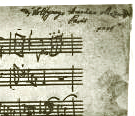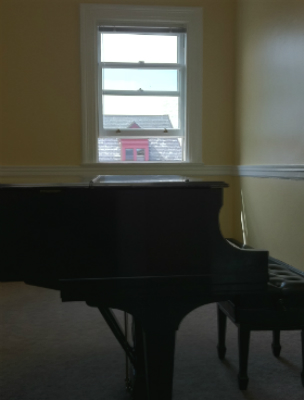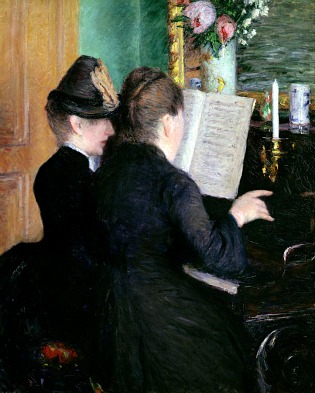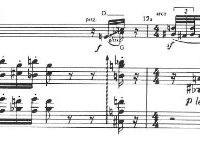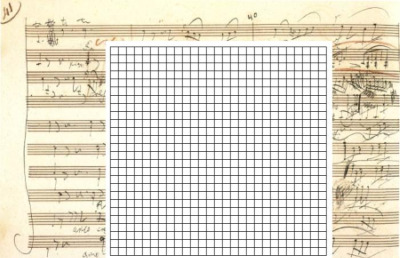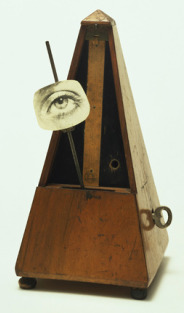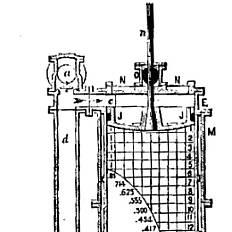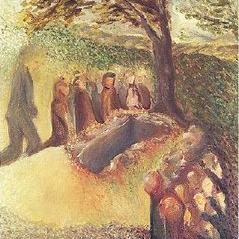Paris, 2014 Arnold Schoenberg gave Rudolf Serkin an assignment. (This story is hearsay; worthy of attention, in my opinion.) Consider the opening of Mozart's A-Minor piano sonata, Schoenberg asked Serkin. What is the right instrumentation for this music, if it were to be scored for orchestral instruments? Mozart: Sonata in A Minor, KV 310 (300d) Serkin's answer included an oboe playing the upper melody line, and strings taking the … [Read more...]
Homeplace
My grandmother, my father’s mother, had a nonchalant and serious way of saying “homeplace.” She was talking about the family farm where she lived for more than five decades, where members of the Brubaker family had lived for a century. It wasn’t grand. But conveyed in her pronunciation of that word was both great comfort and resignation. I don’t suppose I understand it. There were entire winter months when she stayed there, never venturing off … [Read more...]
Overheard
During some days in late summer, I practiced Beethoven's Fourth Concerto. I'm sure the windows were open. My Juilliard piano teacher, Jacob Lateiner lived on 84th Street, just around the block. I mentioned I was learning Beethoven's Fourth Concerto. "I know," he said. Pianists are prone to be overheard. The piano can be a loud instrument. Living in close proximity to others, in a New York City apartment, or a suburban house -- practicing is not … [Read more...]
Why (not) demonstrate?
It's the routine of many piano lessons: Teacher sitting next to student sitting at the piano. One copy of the written music. Student and teacher examine it together. From time to time, teacher reaches over, or deseats student, in order to demonstrate details, or even phrases of the music. (In an unkind moment, I have called it "piano-teacher-position.") In an alternate version, the teacher occupies a second piano, demonstrating sound, techniques, … [Read more...]
A short history of measure numbers
There didn't used to be any. Schoenberg was an early numberer of every bar. But, in some manuscripts, no number 13 (12, 12a, 14...)! New notated music became so particular that it needed to be possible easily to scrutinize it beginning at any measure, in rehearsal. Old music that was part of the canon got measure numbers as it was republished, after 1900. (Nineteenth-century collected works editions didn't yet include this modernism of bar … [Read more...]
Off the grid
By the later 20th Century, the performance of classical music -- for orchestra, also chamber music, and solos -- was dominated by pervasive strong regular beat. Emphasis on beat-regularity is the outcome or reflection of several musical and societal changes, among these mass production, the standardization of time keeping (time zones), the metronome, sound recording, the ascent of conducting, more emphasis on "full" scores, the practice of … [Read more...]
Beat It
Walking across the campus of a big Midwestern university, I hear drumming. The drumline from the school's marching band is practicing outdoors, with a very loud metronome. Big speakers blast out the regular electric beats -- quite a lot louder than twenty drummers drumming. These beats sound like gunshots. The music is intricate with a lot of syncopation, and these kids fit it all in, around the clicks. This kind of practicing is not so … [Read more...]
Interior Decorator
Wrote Arnold Schoenberg (in "Problems in Teaching Art"): "Is technique a cause or an effect, a by-product? Expressive content wishes to make itself understood; its upheaval produces a form. A volcano erupts, the devastation makes an ornamental effect; a steam-kettle explodes, and the objects it strews around fall at points one could exactly calculate on the basis of relationships of tension, weights, distances and resistances. One can, … [Read more...]
One note at a time
The work of the performer may seem repetitious. We are measuring out time with our playing and practicing. We are measuring out life, one Beethoven sonata at a time. In a sense, am I measuring my way toward death with my performances? I might speculate: "Will I play Beethoven's "Pathétique" Sonata a hundred times more before I die?" Or five times? Or never? Arnold Schoenberg: Gustav Mahler's Burial, 1911 Of course, all kinds of people … [Read more...]

